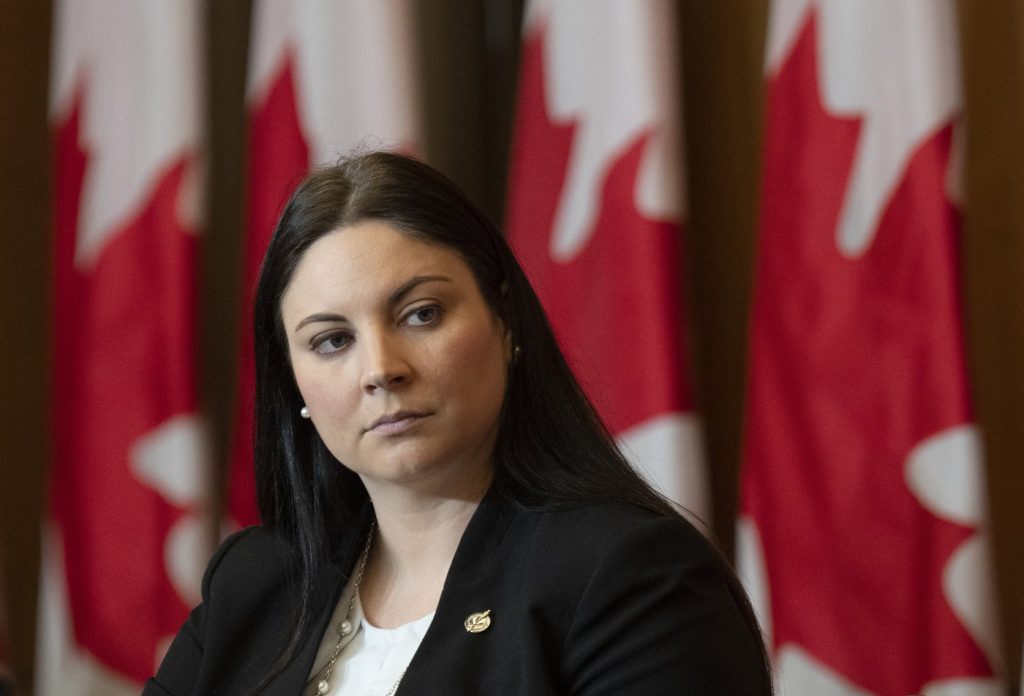FREDERICTON – Jenica Atwin, the Member of Parliament for Fredericton, has announced her decision to step back from federal politics for the “time being.” One significant factor influencing her choice is the intense online hate she has encountered, which she described as surprisingly toxic. Initially elected in 2019 representing the Green Party, Atwin switched her allegiance to the Liberal Party in 2021, around the same time she felt compelled to close her X account due to detrimental impacts on her mental health.
Atwin highlighted the continuous barrage of vitriol and threats that she, along with her female colleagues, faces, stating that women in politics endure a different level of hostility compared to their male counterparts. Although she anticipated negative feedback with her entry into politics, the volume of abuse exceeded her expectations. The escalation of hateful messages directed at her surged during 2022, aligning with heightened tensions from the COVID-19 pandemic and significant public demonstrations against vaccine mandates, which included the notable trucker protests occupying Parliament Hill.
Throughout these protests, Atwin reported that her office received numerous “hate calls” from across Canada and the U.S. Any public speech she made in the House of Commons would typically prompt an influx of hateful messages and voicemails, necessitating her team to sift through threats, some of which required police involvement. She noted that the nature of the abuse included bomb threats, sexual violence threats, and other forms of verbal harassment, indicating a concerning trend where individuals felt emboldened enough to send such vile messages.
Atwin expressed that the relentless hate and criticism erode individuals' resilience and impact their mental well-being. She also considered the emotional toll on her family, noting that her parents, siblings, and husband experienced distress from witnessing negative comments about her online. However, Atwin emphasized that this issue isn't exclusive to her; she also expressed concern regarding the effect of such hate on Prime Minister Justin Trudeau and his family. She remarked on the psychological impact of derogatory remarks aimed at Trudeau, especially those that also affect his children, referring to the “F— Trudeau” flags that have been publicly displayed.
In response to a significant wave of resignations among elected officials in Quebec, the provincial government enacted legislation last year enabling fines up to $1,500 for individuals who threaten or intimidate politicians. Chris Tenove, assistant director at the University of British Columbia’s Centre for the Study of Democratic Institutions, commented on the increase in online hate speech over the last decade, linking it to the volatile political climate exacerbated by the COVID-19 pandemic. He noted that both polarization in politics and the cultural clashes during this period intensified online abuse directed at politicians.
While research on whether women receive more online hate than men remains limited, Tenove observed patterns indicating that public figures and politicians, particularly women, face distinct forms of online abuse. He emphasized that such abuse often takes a “gendered form,” where women’s responses are more likely met with sexual threats or dismissive comments due to their gender. Some politicians may withstand high levels of hostility, while others may find it disruptive to their mental and emotional well-being, ultimately affecting their enthusiasm for public service.
For now, Atwin plans to devote more time to her family, especially her two sons, aged seven and 12. She hopes for a gradual reduction in online hate and encourages people to express disagreements respectfully. Atwin concluded that there isn’t a straightforward solution to the issue of online hate; rather, it requires a societal shift in perspective. “There’s no real silver bullet to how to do that,” she stated, underscoring the complexity of the situation.










